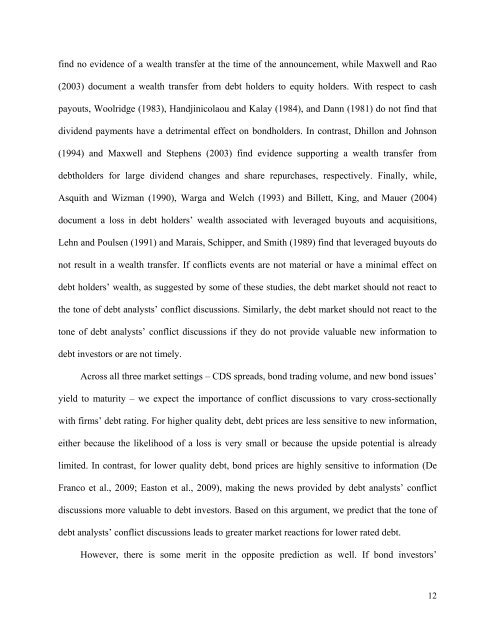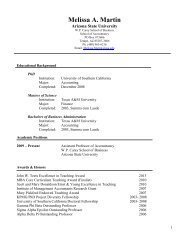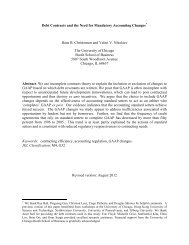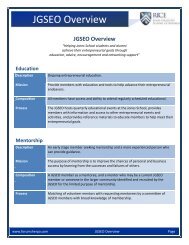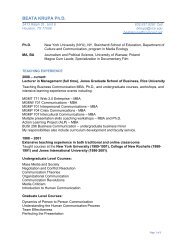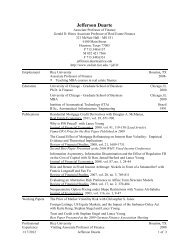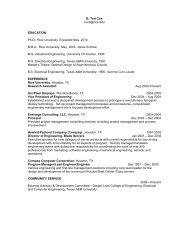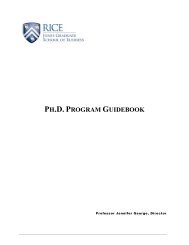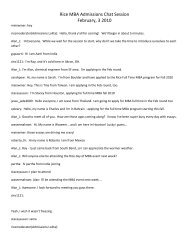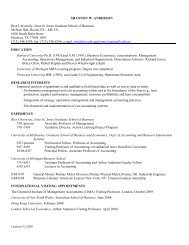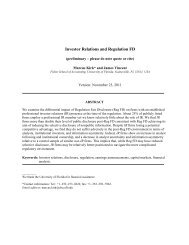Debt Analysts' Views of Debt-Equity Conflicts of Interest
Debt Analysts' Views of Debt-Equity Conflicts of Interest
Debt Analysts' Views of Debt-Equity Conflicts of Interest
Create successful ePaper yourself
Turn your PDF publications into a flip-book with our unique Google optimized e-Paper software.
find no evidence <strong>of</strong> a wealth transfer at the time <strong>of</strong> the announcement, while Maxwell and Rao<br />
(2003) document a wealth transfer from debt holders to equity holders. With respect to cash<br />
payouts, Woolridge (1983), Handjinicolaou and Kalay (1984), and Dann (1981) do not find that<br />
dividend payments have a detrimental effect on bondholders. In contrast, Dhillon and Johnson<br />
(1994) and Maxwell and Stephens (2003) find evidence supporting a wealth transfer from<br />
debtholders for large dividend changes and share repurchases, respectively. Finally, while,<br />
Asquith and Wizman (1990), Warga and Welch (1993) and Billett, King, and Mauer (2004)<br />
document a loss in debt holders’ wealth associated with leveraged buyouts and acquisitions,<br />
Lehn and Poulsen (1991) and Marais, Schipper, and Smith (1989) find that leveraged buyouts do<br />
not result in a wealth transfer. If conflicts events are not material or have a minimal effect on<br />
debt holders’ wealth, as suggested by some <strong>of</strong> these studies, the debt market should not react to<br />
the tone <strong>of</strong> debt analysts’ conflict discussions. Similarly, the debt market should not react to the<br />
tone <strong>of</strong> debt analysts’ conflict discussions if they do not provide valuable new information to<br />
debt investors or are not timely.<br />
Across all three market settings – CDS spreads, bond trading volume, and new bond issues’<br />
yield to maturity – we expect the importance <strong>of</strong> conflict discussions to vary cross-sectionally<br />
with firms’ debt rating. For higher quality debt, debt prices are less sensitive to new information,<br />
either because the likelihood <strong>of</strong> a loss is very small or because the upside potential is already<br />
limited. In contrast, for lower quality debt, bond prices are highly sensitive to information (De<br />
Franco et al., 2009; Easton et al., 2009), making the news provided by debt analysts’ conflict<br />
discussions more valuable to debt investors. Based on this argument, we predict that the tone <strong>of</strong><br />
debt analysts’ conflict discussions leads to greater market reactions for lower rated debt.<br />
However, there is some merit in the opposite prediction as well. If bond investors’<br />
12


